Transporting oil from one location to another is a complex process that requires meticulous planning, robust infrastructure, and reliable transportation methods. At CarMax Vehicle, we understand the intricacies involved in oil transportation and are committed to providing top-tier solutions that ensure efficiency, safety, and reliability. This comprehensive guide delves into the various facets of oil transportation, exploring the methods, challenges, and innovations that shape the industry today.
Understanding Oil Transportation: An Overview
Oil transportation is a pivotal aspect of the global energy supply chain, enabling the movement of crude oil from extraction sites to refineries and, subsequently, to distribution centers. The seamless flow of oil is crucial for energy security, economic stability, and industrial operations worldwide. The transportation process can be broken down into several key stages:
- Extraction and Initial Processing: Crude oil is extracted from underground reservoirs and undergoes preliminary processing to remove impurities.
- Transportation to Refineries: The processed oil is transported to refineries for further refinement into usable products like gasoline, diesel, and petrochemicals.
- Distribution of Refined Products: Refined oil products are distributed to various markets, industries, and consumers.
Each stage involves different transportation modes, each with its unique advantages and challenges.
Transportation Modes: Comparing Efficiency and Suitability
Oil can be transported via several modes, each suited to specific logistical and geographical requirements. The primary modes include pipelines, railways, roads, and maritime vessels. Below is a comparative analysis highlighting the key features of each transportation method:
| Transportation Mode | Advantages | Challenges | Common Uses |
|---|---|---|---|
| Pipelines | High capacity, cost-effective over long distances, low environmental impact | High initial infrastructure cost, potential for leaks and spills, limited flexibility | Continuous transport of large volumes over land |
| Railways | Flexible routing, suitable for varied terrains, relatively fast | Susceptible to delays, higher operational costs, safety concerns | Transporting oil from extraction sites to refineries or ports |
| Road Transport | Highly flexible, ideal for short distances and last-mile delivery, quick deployment | Limited capacity, higher per-unit cost, traffic and route constraints | Distribution to local markets and industrial consumers |
| Maritime Vessels | Ideal for international transport, high capacity, cost-effective for bulk shipping | Weather-dependent, longer transit times, port congestion | Exporting and importing oil across continents |
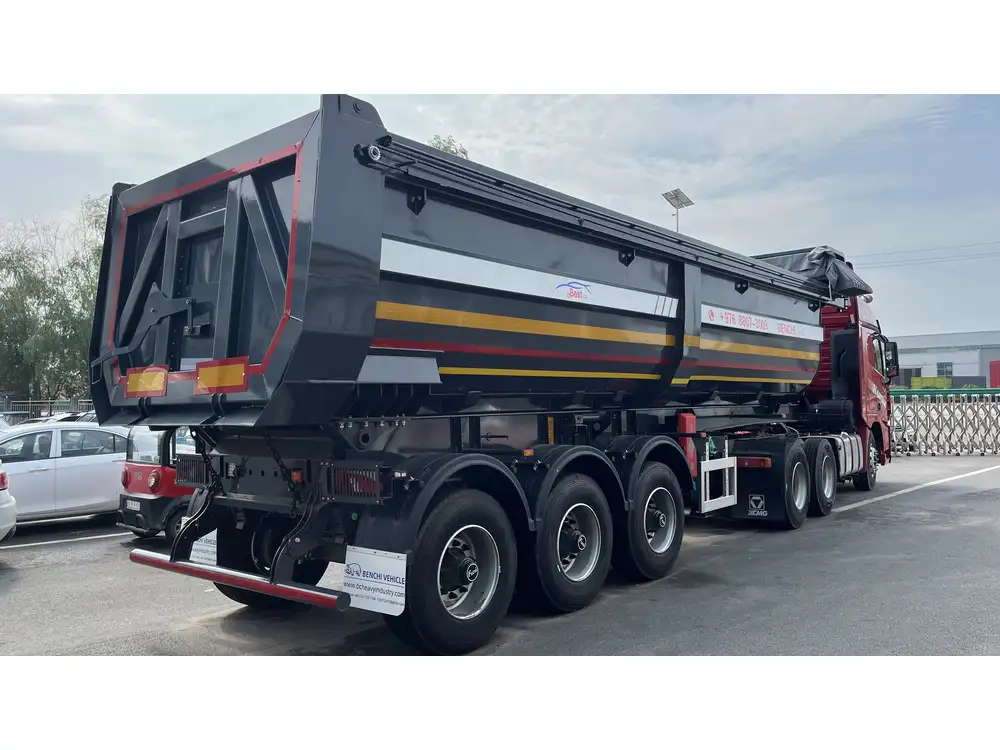
Pipelines: The Backbone of Oil Transportation
Pipelines are the most efficient and reliable means of transporting large volumes of oil over land. They offer a continuous flow of oil, minimizing delays and reducing the overall transportation cost per unit. The construction of pipelines involves extensive planning and investment, ensuring that they traverse the most direct and safe routes between extraction sites and refineries.
Key Considerations for Pipeline Transportation
- Route Selection: Selecting an optimal route that minimizes environmental impact and avoids densely populated areas.
- Pipeline Maintenance: Regular inspections and maintenance to prevent leaks, ruptures, and other safety hazards.
- Regulatory Compliance: Adhering to stringent regulatory standards to ensure safety and environmental protection.
Rail Transport: Flexibility Meets Capacity
Railways provide a flexible alternative to pipelines, especially in regions where pipeline infrastructure is lacking. Rail transport allows for the movement of oil across diverse terrains and can be quickly adjusted to meet changing demand patterns. However, it comes with higher operational costs and requires robust safety measures to prevent accidents and spills.

Advantages of Rail Transport
- Accessibility: Ability to reach remote areas without existing pipeline infrastructure.
- Scalability: Easily scalable based on demand fluctuations and market needs.
- Speed: Faster deployment and adjustments compared to pipeline construction.
Road Transport: The Final Mile Solution
Road transportation plays a critical role in the final mile delivery of oil, connecting refineries and storage facilities to end-users. Semi-trailers, such as those manufactured by CarMax Trailer, are integral to this process, offering flexibility and reliability for transporting oil across various distances.
Benefits of Road Transport
- Versatility: Suitable for both short and medium distances, adaptable to different routes.
- Rapid Deployment: Quick response to urgent delivery requirements and market changes.
- Accessibility: Ability to reach areas not serviced by pipelines or railways.
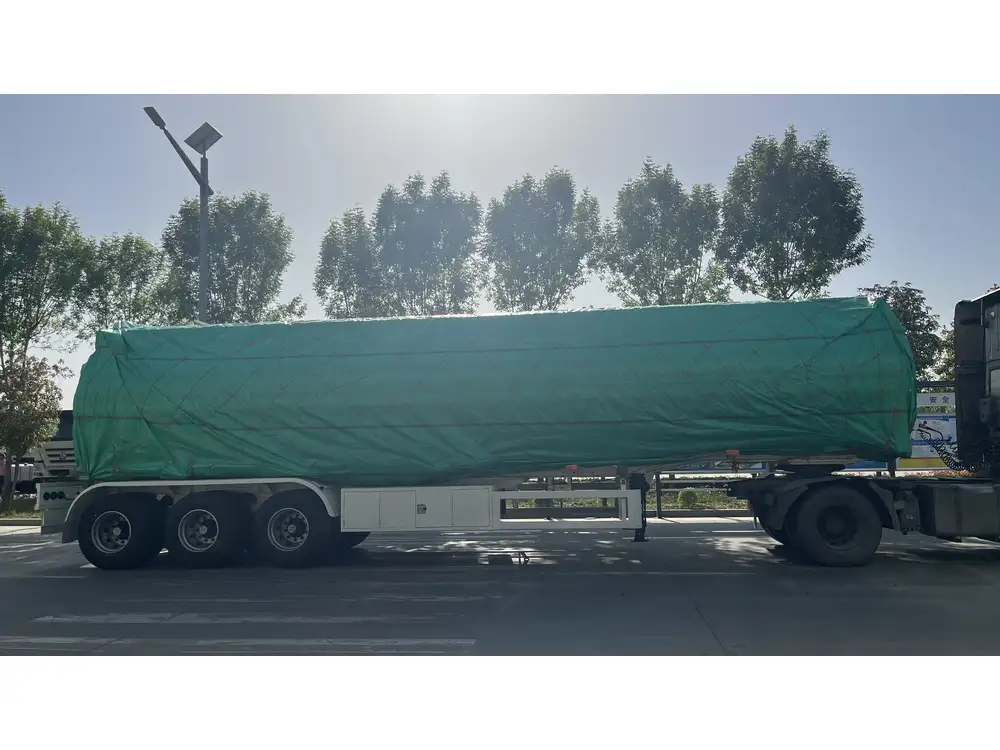
Maritime Vessels: Global Connectivity
For international oil trade, maritime vessels are indispensable. Tankers and other specialized ships transport vast quantities of oil across oceans, connecting global markets and ensuring the steady flow of oil supply internationally.
Key Features of Maritime Oil Transport
- Capacity: Capable of transporting millions of barrels in a single voyage.
- Cost Efficiency: Lower cost per unit for long-distance, bulk shipping compared to other modes.
- Global Reach: Ability to transport oil between continents, supporting international trade.
Storage and Safety Measures in Oil Transportation
Ensuring the safe storage and transportation of oil is paramount to prevent environmental contamination, accidents, and economic losses. Comprehensive safety measures are implemented across all transportation modes to mitigate risks.
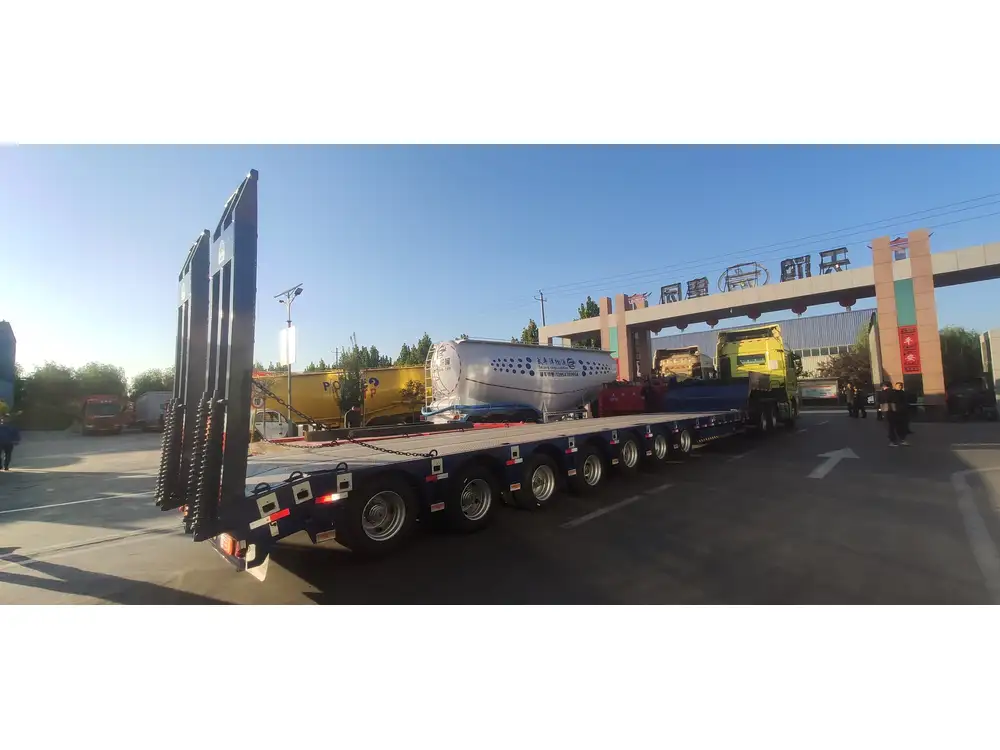
Pipeline Safety Protocols
- Regular Inspections: Utilizing advanced technologies like smart pigs to detect anomalies within the pipeline.
- Leak Detection Systems: Implementing real-time monitoring to identify and address leaks promptly.
- Emergency Response Plans: Establishing protocols for quick action in case of pipeline failures.
Rail and Road Transport Safety
- Secure Loading and Unloading Practices: Ensuring proper handling of oil during transfer to prevent spills.
- Driver Training Programs: Providing specialized training for drivers handling hazardous materials.
- Vehicle Maintenance: Regular maintenance of railcars and semi-trailers to ensure operational integrity.
Maritime Safety Standards
- Regulatory Compliance: Adhering to international maritime safety regulations and standards.
- Ship Maintenance: Regular upkeep of vessels to prevent mechanical failures and accidents.
- Environmental Safeguards: Implementing measures to minimize the environmental impact of oil spills.
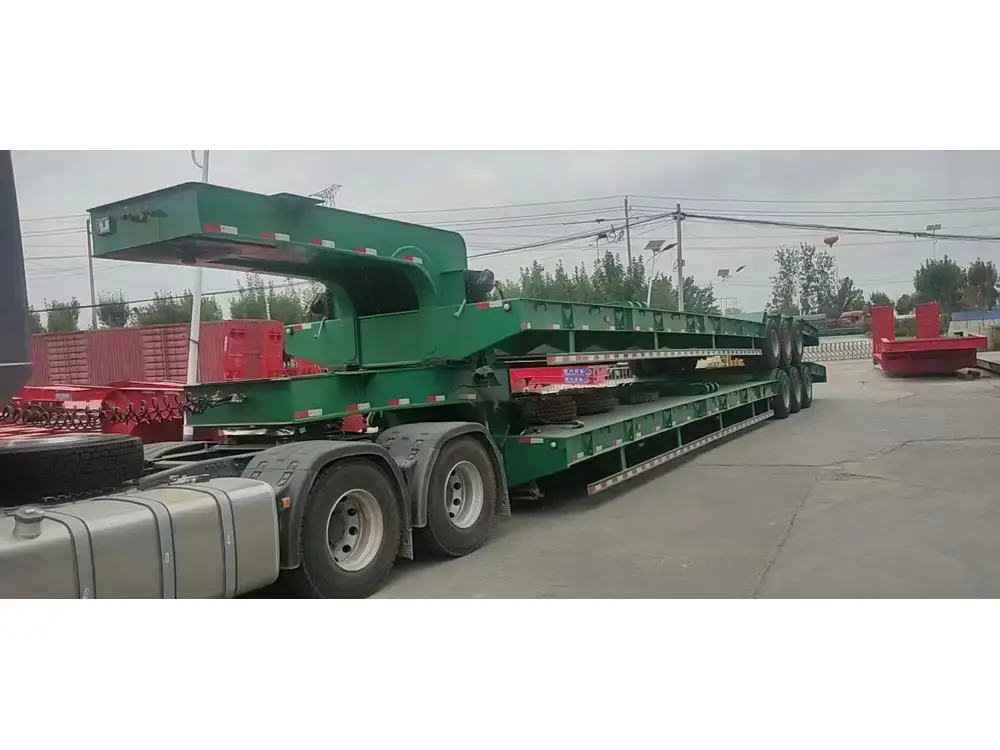
The Role of CarMax Vehicle in Oil Transportation
At CarMax Vehicle, we specialize in manufacturing high-quality semi-trailers designed to meet the demanding requirements of oil transportation. Our CarMax Trailer series offers unparalleled durability, efficiency, and safety, making them the preferred choice for oil transporters worldwide.
Why Choose CarMax Trailer?
- Advanced Engineering: Our trailers are engineered with the latest technologies to ensure optimal performance under various conditions.
- Robust Construction: Built with high-strength materials to withstand the rigors of oil transportation and ensure long-term reliability.
- Safety Features: Equipped with state-of-the-art safety mechanisms to prevent accidents and spills during transit.
- Customization Options: Offering tailored solutions to meet specific transportation needs and regulatory requirements.
Features of CarMax Trailer
- Spacious Cargo Capacity: Designed to maximize load efficiency, reducing the number of trips required and lowering transportation costs.
- Enhanced Mobility: Lightweight yet strong design allows for easier maneuvering and reduced fuel consumption.
- Durable Coatings: Resistant to corrosion and wear, ensuring longevity and minimal maintenance.
- Integrated Monitoring Systems: Real-time tracking and monitoring capabilities for effective management and oversight.

Optimizing Efficiency in Oil Transportation
Efficiency in oil transportation is crucial for minimizing costs, reducing environmental impact, and ensuring timely delivery. At CarMax Vehicle, we focus on optimizing every aspect of the transportation process to enhance overall efficiency.
Route Optimization
Utilizing advanced logistics software, we help identify the most efficient routes, taking into account factors like distance, traffic patterns, and geological conditions. This minimizes transit time and fuel consumption, contributing to cost savings and reduced carbon emissions.
Fleet Management
Effective fleet management involves strategic planning and coordination of transportation assets to maximize utilization and minimize downtime. Our CarMax Trailers are designed for easy integration into fleet management systems, ensuring seamless operations and enhanced productivity.

Fuel Efficiency
Our semi-trailers are engineered to reduce aerodynamic drag and optimize weight distribution, leading to significant improvements in fuel efficiency. Lower fuel consumption not only reduces operational costs but also contributes to a more sustainable transportation model.
Addressing Challenges in Oil Transportation
Oil transportation faces numerous challenges, including environmental concerns, regulatory compliance, and logistical complexities. At CarMax Vehicle, we are dedicated to addressing these challenges through innovative solutions and robust support.
Environmental Impact
Minimizing the environmental footprint of oil transportation is a top priority. Our trailers are designed with eco-friendly materials and incorporate features that reduce emissions and prevent spills, ensuring environmentally responsible operations.
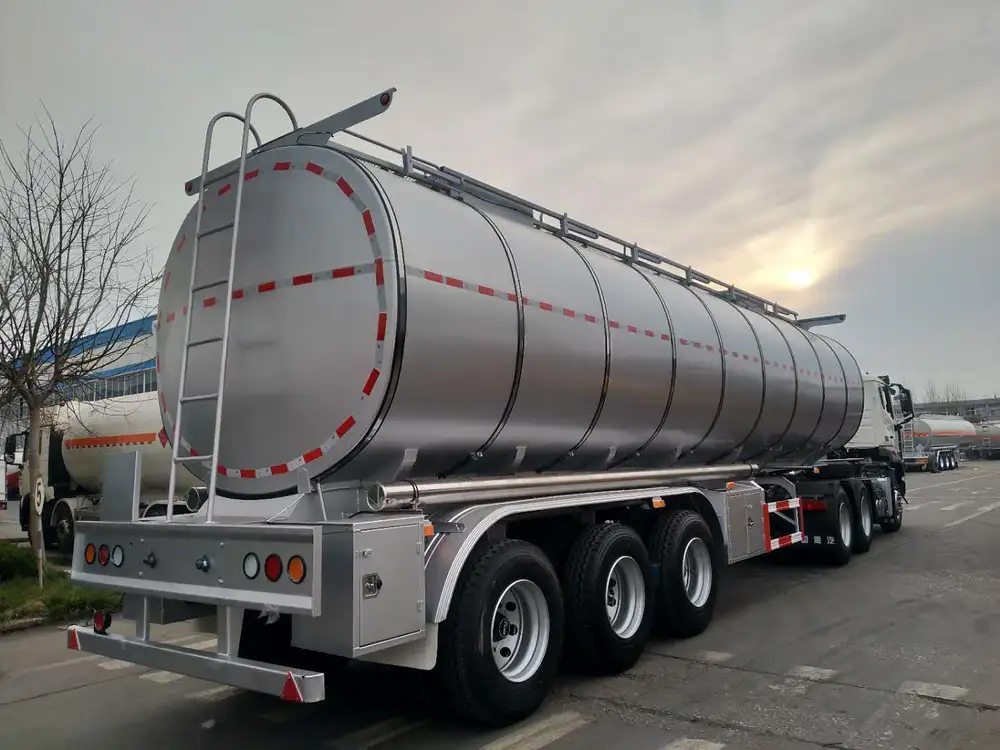
Regulatory Compliance
Navigating the complex web of regulations governing oil transportation requires expertise and diligence. We ensure that our products meet all relevant standards and provide guidance to our clients on maintaining compliance, thereby avoiding legal and financial repercussions.
Logistical Complexities
Managing the logistical aspects of oil transportation, such as coordinating multiple transportation modes and handling unexpected disruptions, can be daunting. Our comprehensive support services and customizable trailer solutions help streamline operations and enhance logistical efficiency.
Future Trends in Oil Transportation
The oil transportation industry is continually evolving, driven by technological advancements and shifting market dynamics. Staying ahead of these trends is essential for maintaining competitiveness and ensuring long-term success.

Automation and Smart Technologies
The integration of automation and smart technologies is revolutionizing oil transportation. Advanced monitoring systems, autonomous vehicles, and data analytics are enhancing operational efficiency, safety, and decision-making capabilities.
Sustainable Practices
Sustainability is becoming increasingly important in oil transportation. Innovations like alternative fuels, energy-efficient vehicles, and eco-friendly materials are paving the way for more sustainable practices that balance economic and environmental objectives.
Diversification of Transportation Modes
The diversification of transportation modes, including the use of multi-modal transport solutions, is enhancing flexibility and resilience in the oil supply chain. Combining pipelines, railways, roads, and maritime transport allows for more adaptable and responsive transportation networks.
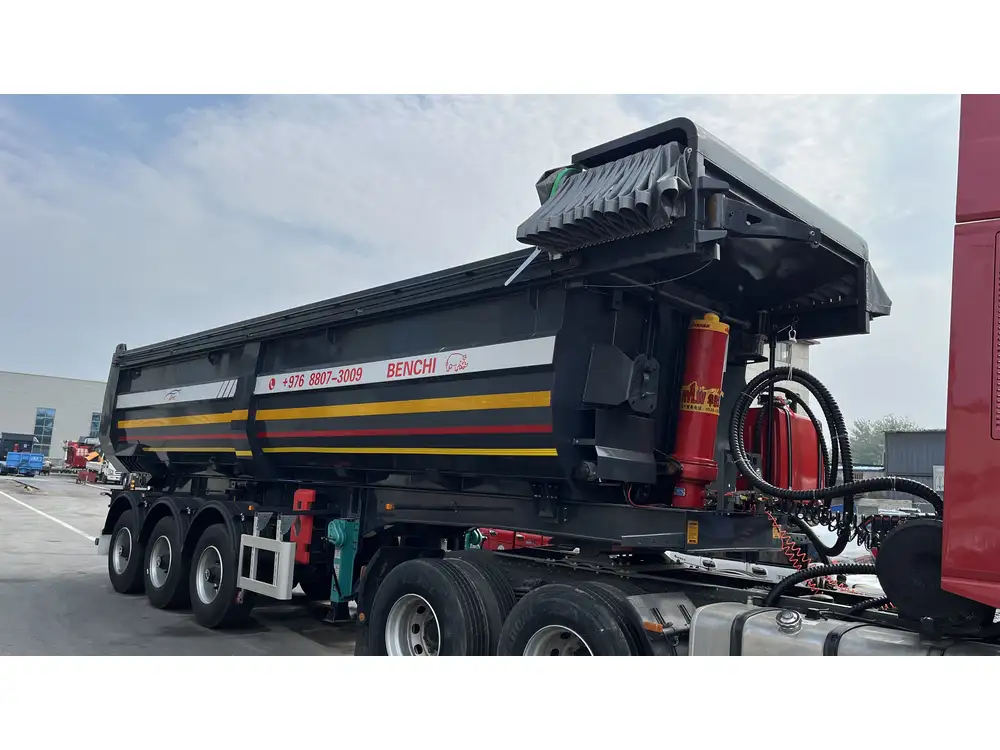
The CarMax Vehicle Advantage
Partnering with CarMax Vehicle ensures access to cutting-edge semi-trailers that are designed to meet the highest standards of efficiency, safety, and reliability. Our commitment to excellence and innovation makes us a trusted partner in the oil transportation sector.
Comprehensive Support
From initial consultation to after-sales support, we provide comprehensive services that ensure our clients achieve their transportation goals with ease and confidence. Our team of experts is dedicated to delivering tailored solutions that address unique transportation challenges.
Proven Track Record
With years of experience in the industry, CarMax Vehicle has established a reputation for excellence and reliability. Our success stories and satisfied clients attest to our ability to deliver top-quality products and services consistently.
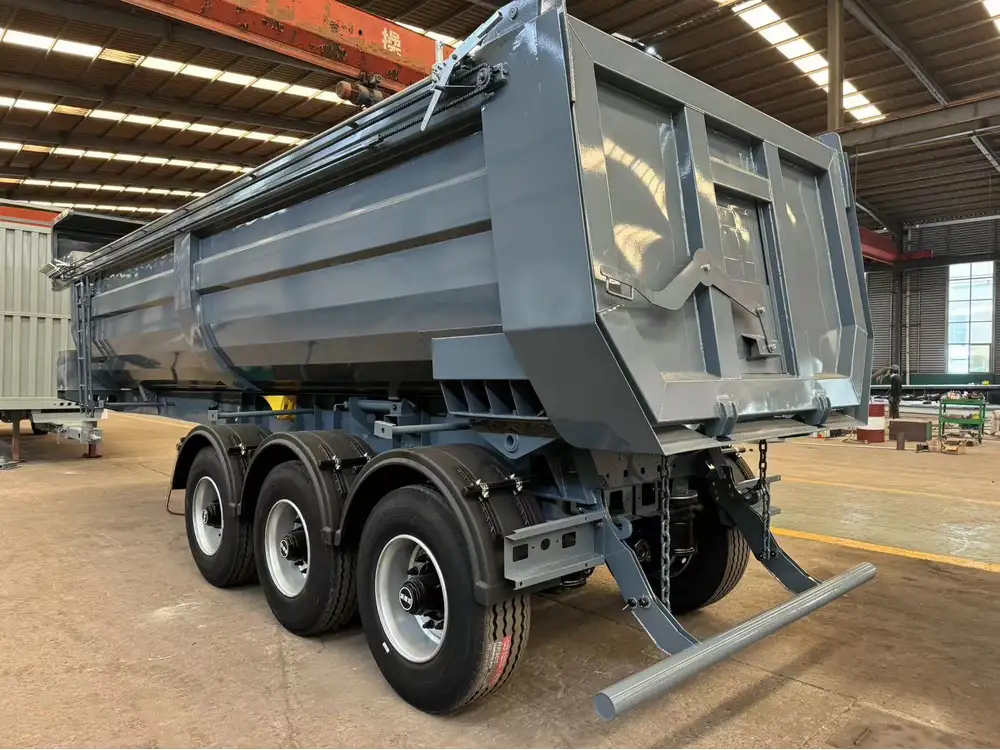
Continuous Innovation
We are committed to continuous innovation, constantly exploring new technologies and methodologies to enhance our products and services. This dedication to innovation ensures that our clients benefit from the latest advancements in oil transportation.
Conclusion
Efficient oil transportation is a cornerstone of the global energy landscape, requiring robust infrastructure, reliable transportation methods, and unwavering commitment to safety and sustainability. At CarMax Vehicle, we are dedicated to providing the highest quality semi-trailers and comprehensive support to facilitate seamless oil transportation from one place to another. Our expertise, innovative solutions, and customer-centric approach make us the ideal partner for all your oil transportation needs.
Frequently Asked Questions

1. What are the primary methods of transporting oil?
Oil is primarily transported via pipelines, railways, roads (using semi-trailers), and maritime vessels. Each method has its unique advantages and is chosen based on factors like distance, volume, and geographical considerations.
2. How does CarMax Vehicle ensure the safety of its semi-trailers?
Our semi-trailers are equipped with state-of-the-art safety features, including spill prevention systems, robust construction materials, and integrated monitoring technologies. Regular maintenance and compliance with stringent safety standards further ensure the reliability and safety of our trailers.
3. What makes CarMax Trailer the preferred choice for oil transportation?
CarMax Trailer stands out due to its advanced engineering, durable construction, customizable options, and enhanced safety features. These attributes ensure efficient, reliable, and safe transportation of oil, making it the preferred choice for industry professionals.

4. How does route optimization contribute to efficient oil transportation?
Route optimization involves selecting the most efficient paths for transporting oil, considering factors like distance, traffic, and terrain. This reduces transit time, lowers fuel consumption, minimizes costs, and decreases the environmental impact of oil transportation.
5. What future trends are shaping the oil transportation industry?
Key trends include the integration of automation and smart technologies, a focus on sustainable practices, and the diversification of transportation modes. These trends are enhancing efficiency, safety, and environmental responsibility in the oil transportation sector.



